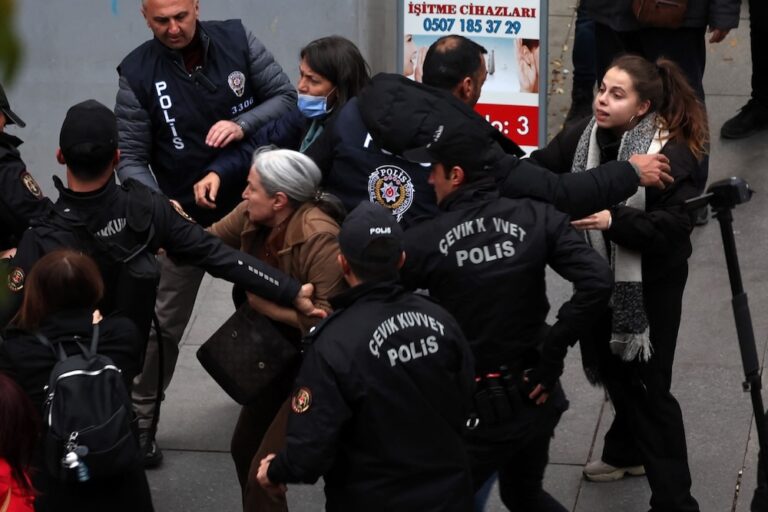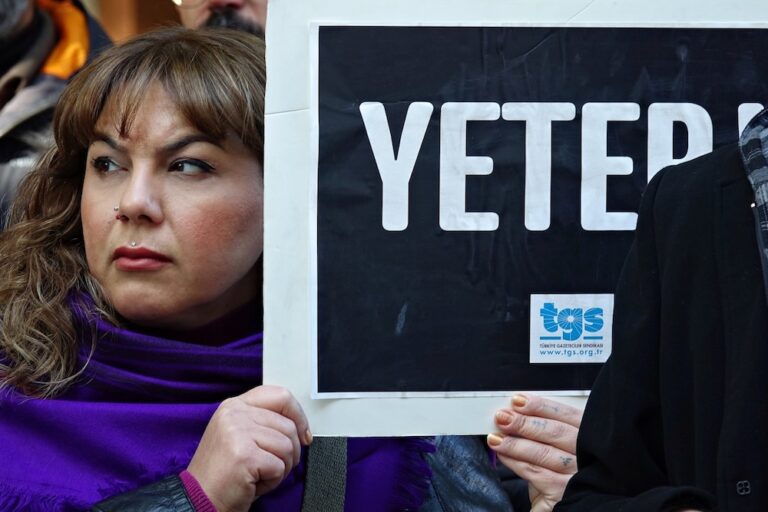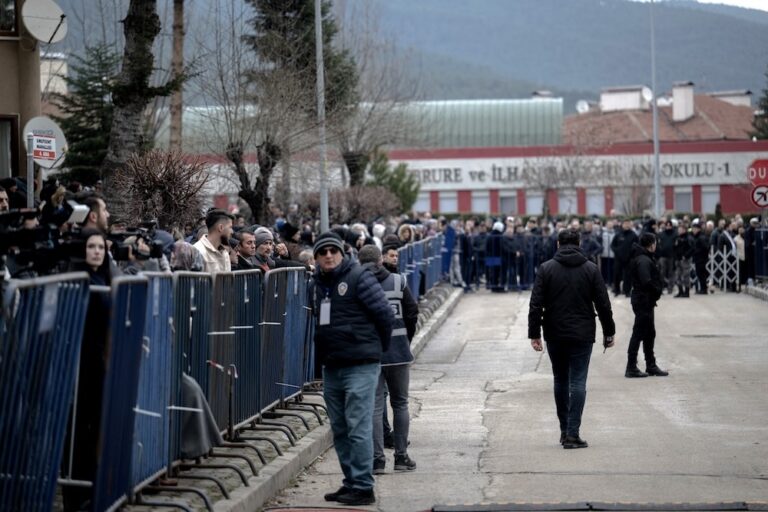(CPJ/IFEX) – The following is a CPJ bulletin announcing a special report on forbidden speech in Turkey: CPJ BULLETIN CPJ RELEASES SPECIAL REPORT ON FORBIDDEN SPEECH IN TURKEY The Committee to Protect Journalists (CPJ) is pleased to announce the Web publication of Crossing the Line: Examples of Forbidden Speech in Turkey (http://www.cpj.org/dangerous/Tdaindex.html). The report features […]
(CPJ/IFEX) – The following is a CPJ bulletin announcing a special report on
forbidden speech in Turkey:
CPJ BULLETIN
CPJ RELEASES SPECIAL REPORT ON FORBIDDEN SPEECH IN TURKEY
The Committee to Protect Journalists (CPJ) is pleased to announce the Web
publication of Crossing the Line: Examples of Forbidden Speech in Turkey
(http://www.cpj.org/dangerous/Tdaindex.html). The report features
translated, annotated versions of actual articles, cartoons, and photographs
that Turkish authorities used as evidence in cases brought against
journalists under one of the several vaguely-worded statutes used to
restrict freedom of expression in Turkey.
Turkey has a press that in many ways is as lively as any in Europe. But when
they write about issues at the heart of modern Turkish politics – political
Islam and Kurdish nationalism in particular – Turkey’s journalists cross
into a minefield. In their zeal to control national discourse, political and
military leaders have criminalized journalism, jailing reporters and editors
for merely profiling a Kurdish leader, interviewing disgruntled Turkish
soldiers, or suggesting that the military wields too much power.
In July 1999, CPJ published Turkey: Criminal Prosecutions of Journalists, a
report on state repression of independent Turkish media. Of the 27 recent
cases in our report, we have selected a sampling and offer here the raw
evidence used to charge or convict those journalists whom Turkey contends
have crossed the line.
On August 28, the Turkish parliament approved an amnesty bill that will
secure the release of a number of journalists and writers who were jailed on
the basis of their published work. The law was signed by President Suleiman
Demirel on September 2. The new legislation “freezes” court cases or jail
terms against individuals charged or convicted of “crimes” committed through
the media for a period of three years. A number of journalists and writers –
32 according to the government – are expected to be released from prison in
the coming weeks. Dozens of other cases pending in court will also be
suspended, including many of those documented in CPJ’s July report.
The new law is a welcome development, but only limited, temporary relief to
Turkey’s press freedom problem. According to the law’s text, if a similar
“offense” is committed within the three-year period, those amnestied will be
required to serve their previous sentence in addition to any new sentence
confirmed by the courts. Similarly, court cases pending against journalists
would be reactivated.
And journalists who committed “crimes” prior to April 23, 1999 will not
qualify for the amnesty. This arbitrary cutoff date allowed a Turkish court
to bring fresh charges against Nadire Mater, who crossed the line with her
interviews with Turkish soldiers. Just weeks after the amnesty was approved,
the court charged Mater with insulting the military. So while some will
benefit from the amnesty, all of Turkey’s journalists still run the risk of
crossing that invisible line.
The complete text of Crossing the Line is posted on CPJ’s Website at
http://www.cpj.org/dangerous/Tdaindex.html


